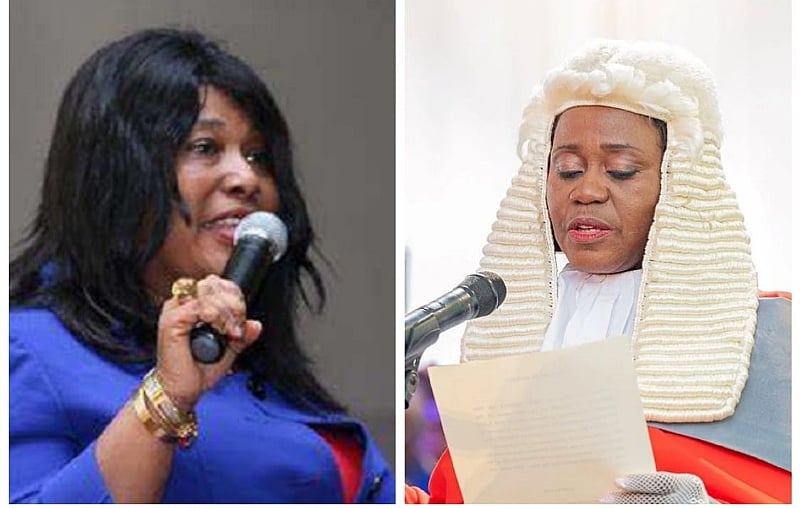The removal of former Chief Justice Gertrude Torkonoo from her position has sparked controversy and debate in Ghana, with presidential staffer Nana Yaa Jantuah criticizing Torkonoo’s conduct during the proceedings. Jantuah argues that Torkonoo projected an image of vulnerability and desperation, diminishing her stature and undermining the judicial process. Jantuah contends that instead of relying on legal procedures, Torkonoo sought sympathy, creating the impression of weakness despite her actual capabilities. This perceived weakness, according to Jantuah, was further exacerbated by Torkonoo’s decision to seek intervention from international bodies.
Jantuah’s critique centers on Torkonoo’s appeals to the ECOWAS Court and the Commonwealth Bar Association. Jantuah deems these actions as inappropriate and even insulting, suggesting they represented a desperate attempt to garner support outside the established legal channels within Ghana. She argues that these appeals not only bypassed the domestic judicial process but also infringed upon Ghana’s sovereignty by inviting external entities to intervene in internal affairs. The ultimatum issued by the Commonwealth Bar Association for Torkonoo’s reinstatement, in Jantuah’s view, further damaged the credibility of Ghana’s judiciary by implying a lack of impartiality and due process within the country’s legal system.
Jantuah maintains that Torkonoo should have adhered to the established judicial procedures within Ghana and allowed the process to unfold without seeking external intervention. By portraying herself as a victim, Jantuah asserts, Torkonoo undermined the integrity of the judicial system and cast doubt on its ability to handle the matter fairly. Jantuah’s criticism reflects a broader concern about the potential implications of international interference in domestic legal affairs and the importance of upholding the sovereignty of the nation’s judicial processes.
Torkonoo’s removal stemmed from a petition alleging misconduct, leading to the formation of a five-member committee to investigate the claims. This committee concluded its inquiry on September 1st, citing three primary reasons for her removal: unlawful expenditure of public funds, abuse of discretionary power, and interference in judicial appointments. These findings formed the basis of President John Mahama’s decision to remove Torkonoo from her position as both Chief Justice and Justice of the Supreme Court. The allegations and subsequent findings against Torkonoo raise serious questions about ethical conduct and the proper use of authority within the judiciary.
The divergent perspectives on Torkonoo’s removal highlight the complexities of navigating legal proceedings and the potential for conflicting interpretations of conduct and process. While Jantuah criticizes Torkonoo’s actions as undermining the judicial system, others may view her appeals to international bodies as a legitimate attempt to seek redress in the face of perceived injustice. The case underscores the delicate balance between respecting national sovereignty and ensuring accountability within the judiciary. The debate surrounding Torkonoo’s removal is likely to continue, raising important questions about the role of international bodies in addressing domestic legal matters and the importance of upholding transparency and due process within judicial systems.
This case serves as a significant example of the challenges and intricacies involved in upholding judicial integrity and maintaining public trust in the legal system. The varying interpretations of Torkonoo’s conduct and the subsequent actions taken against her highlight the need for clear and transparent processes within the judiciary. Furthermore, the debate surrounding the involvement of international bodies raises important questions about the balance between national sovereignty and the pursuit of justice. Ultimately, this case serves as a critical reminder of the ongoing need for robust legal frameworks and ethical conduct within the judiciary to ensure fairness and accountability.


